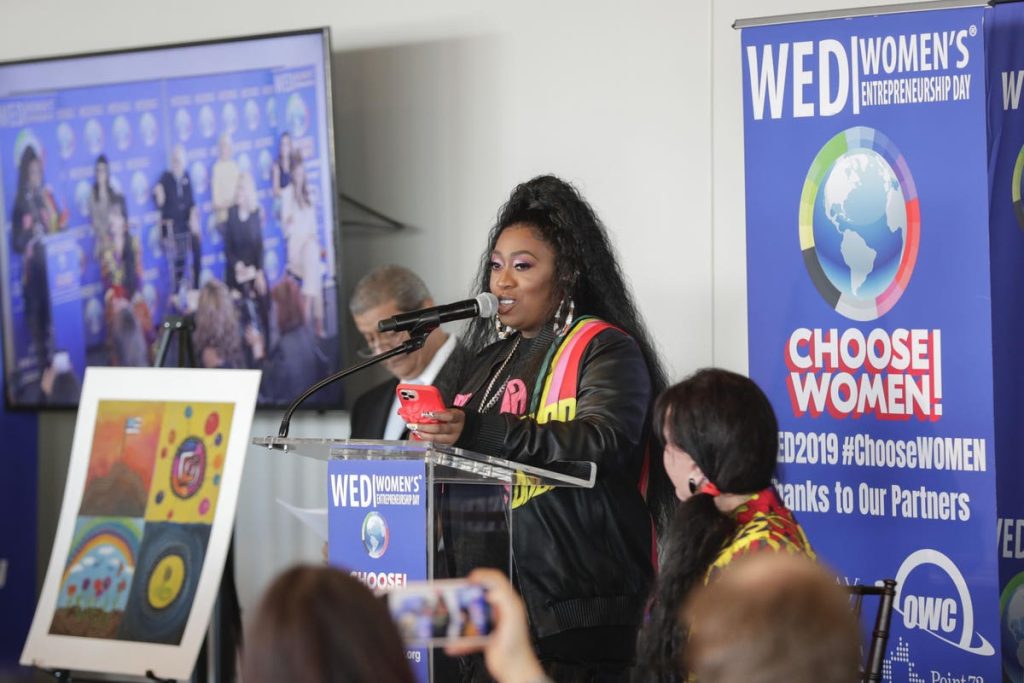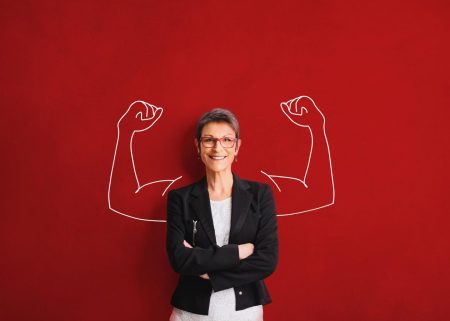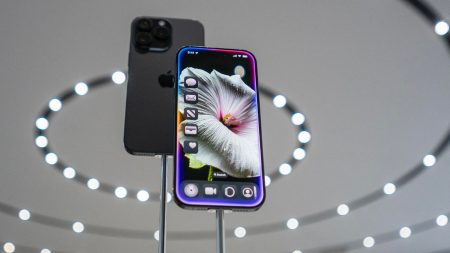Financial returns and societal impact. It’s a both-and argument, not an either-or one, according to Meredith Shields, Managing Director, Head of Citi Impact Fund. “We have an allocated pool of capital that we are investing in early stage startups that are solving some of the world’s most critical challenges. And…we care just as much about the financial success of the company as we do the impact that that company is going to make on the world,” Shields explained in an exclusive interview on Electric Ladies Podcast.
“When I say impact… we think about that in two parts. One, who is running this company? Can we deploy more capital into diverse founders, meaning women, people of color, who have traditionally not received the investment capital that’s warranted?,” she continued, adding, ”And the other impact lens that we take is what we would define as ‘thematic impact,’ which means, what social problems are we solving?.”
Addressing big pressing challenges like climate change takes a lot of money – and risk
To solve the world’s most pressing challenges, including climate change, we need funders who are willing to back innovative – aka risky – ventures. Many solutions are capital intensive and need the support of deep pockets that can absorb a lot of risk.
That includes the federal government, the big financial institutions, affluent foundations, and billionaires, a healthy number of which are stepping up.
Dealmaker reported in April 2023 that, “This sector has shown steady growth in recent years; globally, the impact investing market grew from $420.91 billion in 2022 to $495.82 billion in 2023 (a 17.8% compound annual growth rate).”
The federal government is opening its coffers, including with some of the $1 trillion+ combined funding in the Inflation Reduction Act, Infrastructure Investment and Jobs Act and the CHIPS and Science Act going to selected early stage, innovative technologies. This is on top of other existing federal programs in place that do so, such as the Small Business Innovation Research grants (SBIRs). These are critical funds that help de-risk emerging technologies so that private capital can step in.
Foundations such as the Case Foundation, are also opening their wallets. Case Foundation cofounder and CEO Jean Case explained their philosophy this way, “The impact investing we focus on, and try to bring tools and resources together for, really represents areas of investing where you’re looking for both a financial return and a social return through the investments that you make…I like to remind everyone that every investment has impact. The question is what impact does it have?”
Scaling impact
One of the big financial institutions stepping up is Citi with its Citi Impact Fund, which focuses on supporting a range of companies seeking to make a positive social impact, from climate change-related solutions to societal ones like education, healthcare and childcare. They look for scalability, level of impact and where they can make a difference with their depth and breadth across 95 markets worldwide. They can provide Series A to Series C funding.
“We’re deploying what we would describe as venture capital for a reason. And that’s because venture capital investments are designed to create scale. Like, we want these companies to grow and not only generate, again, business returns, but to generate impact at scale, to change industries, to change the way that things work,” Shields said.
They also focus on serving underserved communities – including women and people of color, disabled populations and others – on both sides of the venture. That means, looking for diverse management teams, and also ensuring these communities are served by the solution, according to Shields. To that end, she said, “Today, over 70% of our companies are led by women and people of color, which are very proud of. Those numbers are quite a bit higher than the traditional investing sector.”
Focused only on U.S. based companies, Shields described the companies they look for this way: “it’s the companies that have gotten past that first idea, they have some proof of concept. Like, they have some customers, somebody’s paying for their service or paying for their thing, and they have some demonstration of what we often call product-market fit. So, we can see evidence that the market likes what they have to offer, and the window’s starting to open that change might actually happen and this company might be able to be the one to do it.”
Companies they invest in include: The Mom Project, founded by Allison Robinson (mother of three), which helps companies hire moms and happens to have Serena Williams as a strategic advisor; Ohm Connect, which seems to help customers save money and energy, and maybe earn money, by timing their electricity use with the grid’s load; Sweeten renovation service, pictured above, and Recycle Track Systems or RTS, which is reducing waste by helping organizations better manage what they discard.
The impact investing movement “appears to have grown and expanded” – and is getting more structured
Shields sees the impact investing space on an upward trajectory. “it appears that this movement to care about the impact of where your money is going, in addition to what comes back to you, has moved. It is not just a handful of family offices and foundations that care about this and are trying to get everyone in there.”
The shift happened, in her view, “somewhere around 2017, when the Ford Foundation announced that they would be putting part of their endowment in impact investments,” which caused “this ripple effect and lots like institutional big funds came out with impact funds. Something changed.”
More corporates, boards, and customers are focused on impact and sustainability now, sometimes labeled ESG. “Now, more recently, we’re seeing even more corporates very focused on this. We’re seeing big companies demanding more of their suppliers, their customers are demanding more of them. This movement appears to have grown and expanded.”
Shields is not surprised by the range of ESG-sustainability-related frameworks, standards and regulations across the globe today, such as the SEC’s forthcoming climate risk disclosure rules. “I do think that it feels natural to me that there’s an expansion of the formality of the impact sector as it has grown.“
Listen to the full interview with Citi’s Meredith Shields here.
Read the full article here










